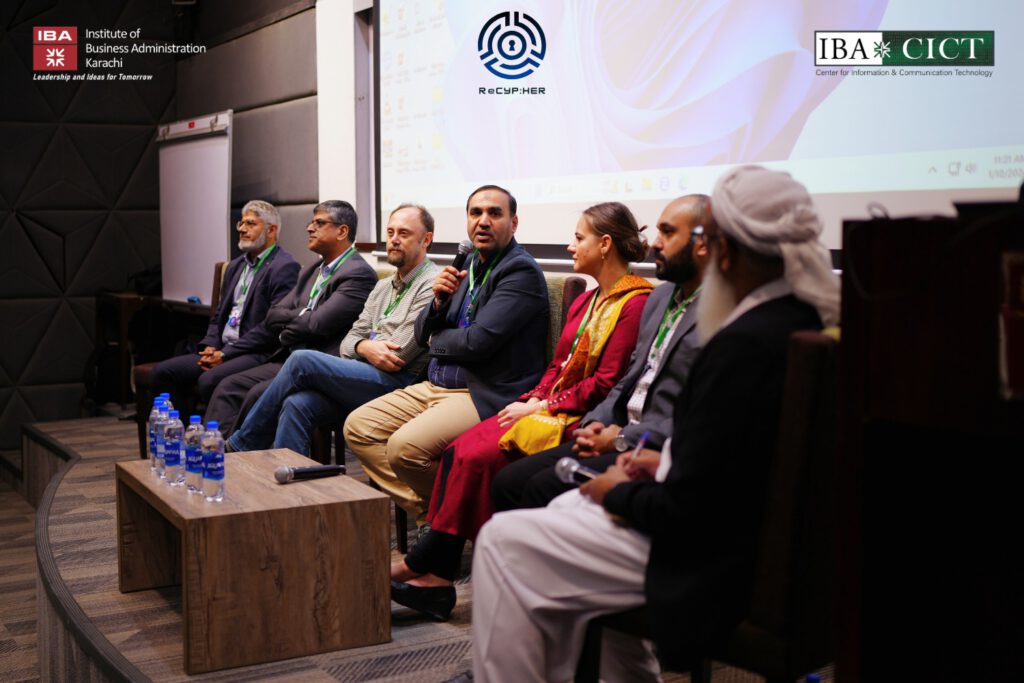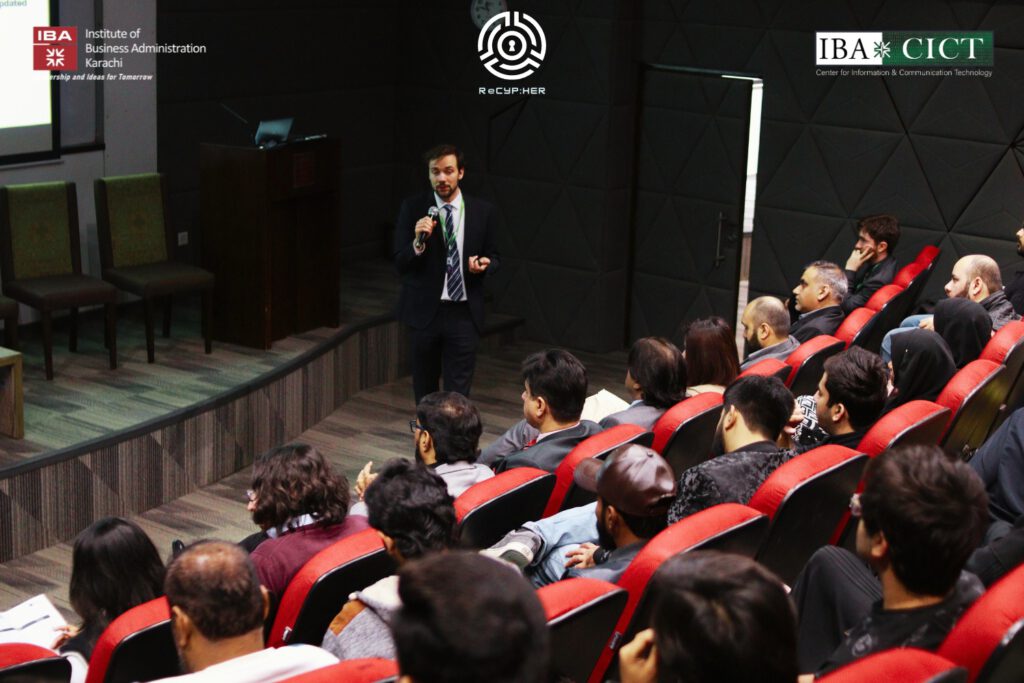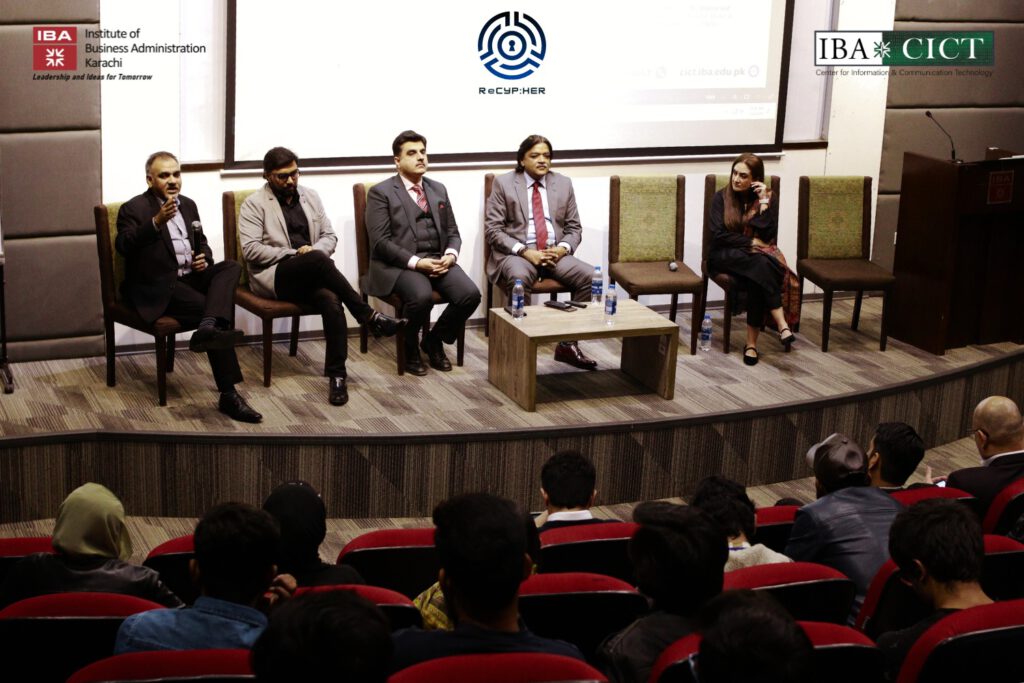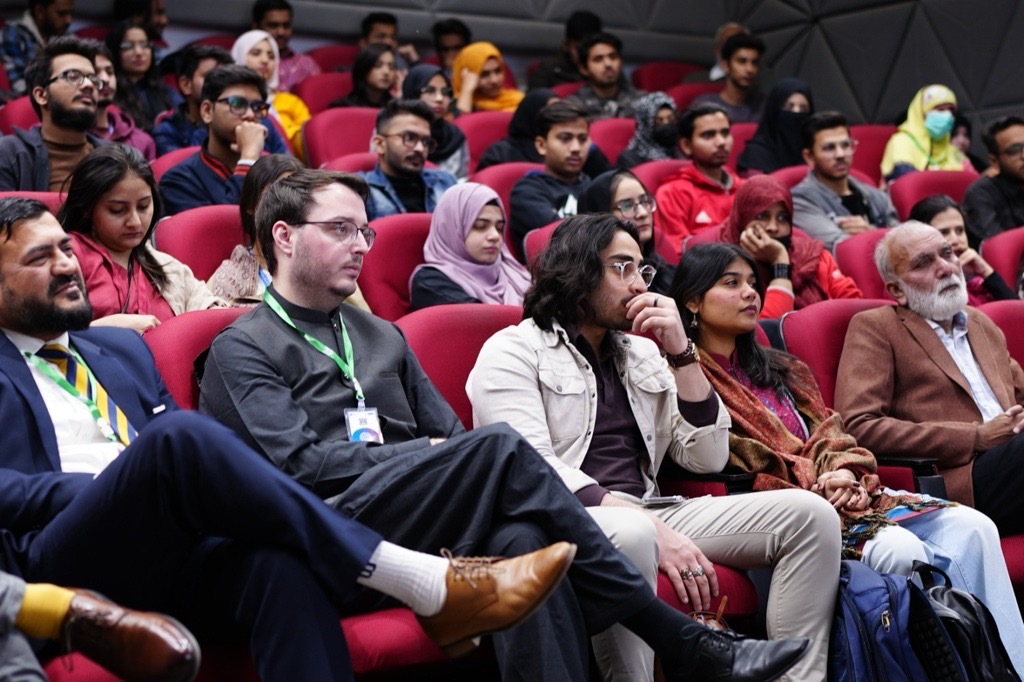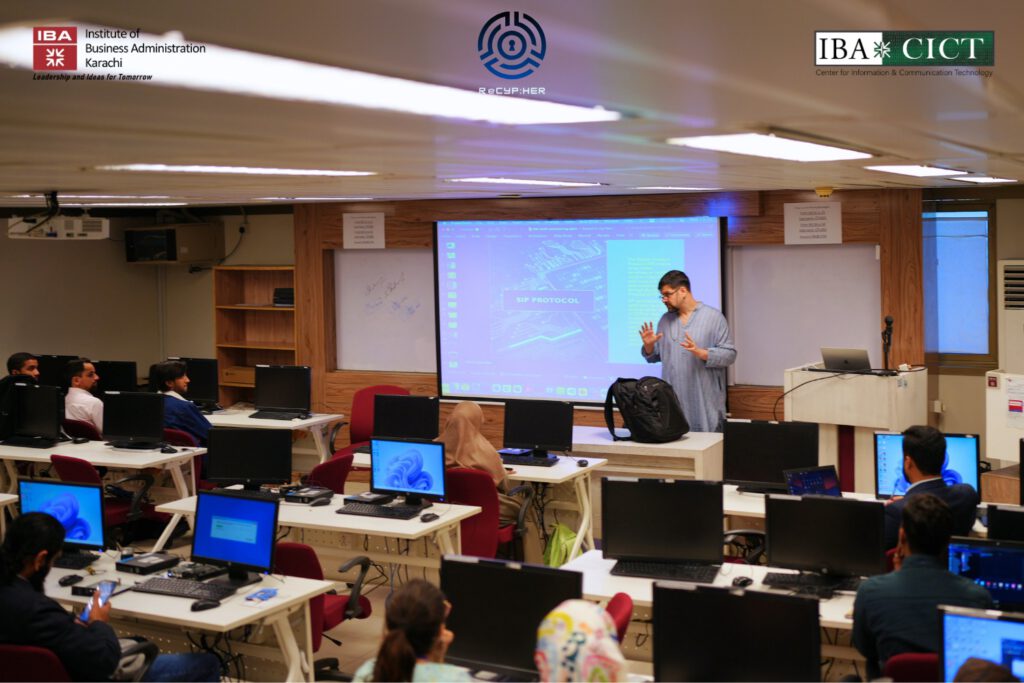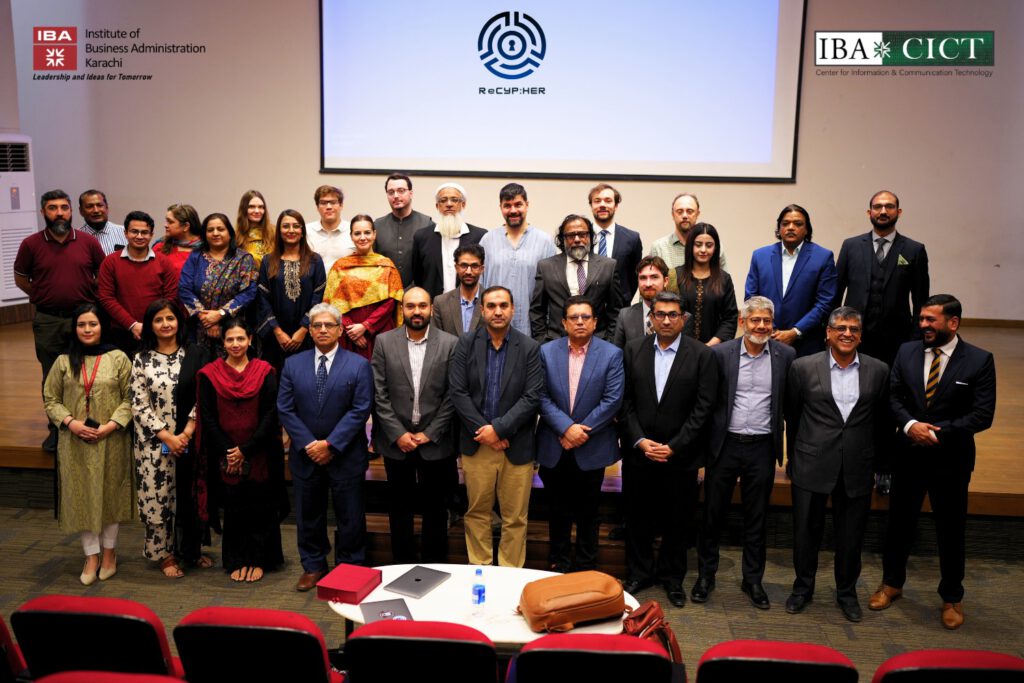Our second National Conference of ReCyP:HER, held on January 10-11, 2024, at the IBA City Campus in Karachi, was a significant event that brought together leaders and experts in the field of cybersecurity and social sciences as well as representatives of politics and the industry. The conference successfully fostered collaboration and shared knowledge, addressing the pressing challenges and innovations in cybersecurity.
Day 1: January 10, 2024
The first day kicked off with an engaging morning filled with refreshments and insightful sessions. Attendees participated in a panel discussion titled “Let’s Dive in The Past: A Discussion on the Journey of ReCyP:HER,” featuring esteemed panelists like Dr. Nida Bajwa from Saarland University, Germany and Dr. Yawar Abbas Bangash from NUST, Pakistan. This discussion provided valuable insights into the evolution of recycling concepts within cybersecurity.
Workshops such as “VolP SECURITY,” led by Dr. Bilgin Metin from Bogazici University, Turkey, equipped participants with practical skills to navigate the complexities of the field.
After a networking lunch, the afternoon sessions included a panel on “Designing the Future: A Panel Discussion on Enhancing Education for Industry Relevance,” moderated by Dr. Shahid Hussain from IBA. Esteemed panelists discussed the intersection of education and industry, ensuring that future professionals are prepared for the evolving cybersecurity landscape.
The day culminated with a keynote address by Dr. Shakeel Khoja, Dean of SMCS at IBA, who emphasized “Stay Today, Thrive Tomorrow: The Role of the Human Factor in the Cyber World.” This session highlighted the importance of incorporating human elements into cybersecurity strategies.
In the evening, participants enjoyed a cultural trip to Karachi’s historical sites, including the Tomb of Quaid and Seaview Beach, followed by dinner at a restaurant, providing an opportunity for exchange and networking in a more informal setting.
Day 2: January 11, 2024
The second day began with presentations on “Outreach Activities of ReCyP:HER” showcasing the collaborative efforts of various partner universities. These efforts included activities to raise awareness of cybersecurity threats among different societal groups, such as high school students. Workshops conducted by Dr. Katharina Krombholz, CISPA, Germany focused on crafting user experiences and understanding user behavior in cybersecurity, providing practical insights for attendees.
Midday discussions on “Strategic Networking” facilitated the sharing of ideas and strategies for improving industry collaboration, ensuring that participants could discuss challenges and propose solutions.
After another opportunity for networking over lunch, sessions resumed with topics like “Human Factors as an Emerging Topic of the 21st Century.” Experts showcased academic innovations and discussed the importance of human factors in cybersecurity initiatives.
Workshops on “Data Privacy” and “Funding Opportunities & Writing Proposals” empowered attendees with skills applicable to their careers, ensuring they left with actionable knowledge.
The conference concluded with a vibrant Qawwali night, offering a cultural experience that celebrated the connections formed throughout the event, followed by a final dinner at the campus.
Conclusion
The second National Conference of ReCyP:HER was a remarkable success, providing a platform for knowledge exchange and collaboration among cybersecurity professionals, social scientists and representatives of industry and politics. Attendees left equipped with new insights, skills, and connections that will undoubtedly contribute to the ongoing development of the field. The event not only showcased the current landscape of cybersecurity but also laid the groundwork for future innovations and interdisciplinary collaborations. For us, the ReCyP:HER team, it was a great opportunity to discuss the sustainable impact of our project’s achievements, such as the implementation of designated Human Factor courses at Pakistani universities and awareness-raising initiatives for various societal groups.
